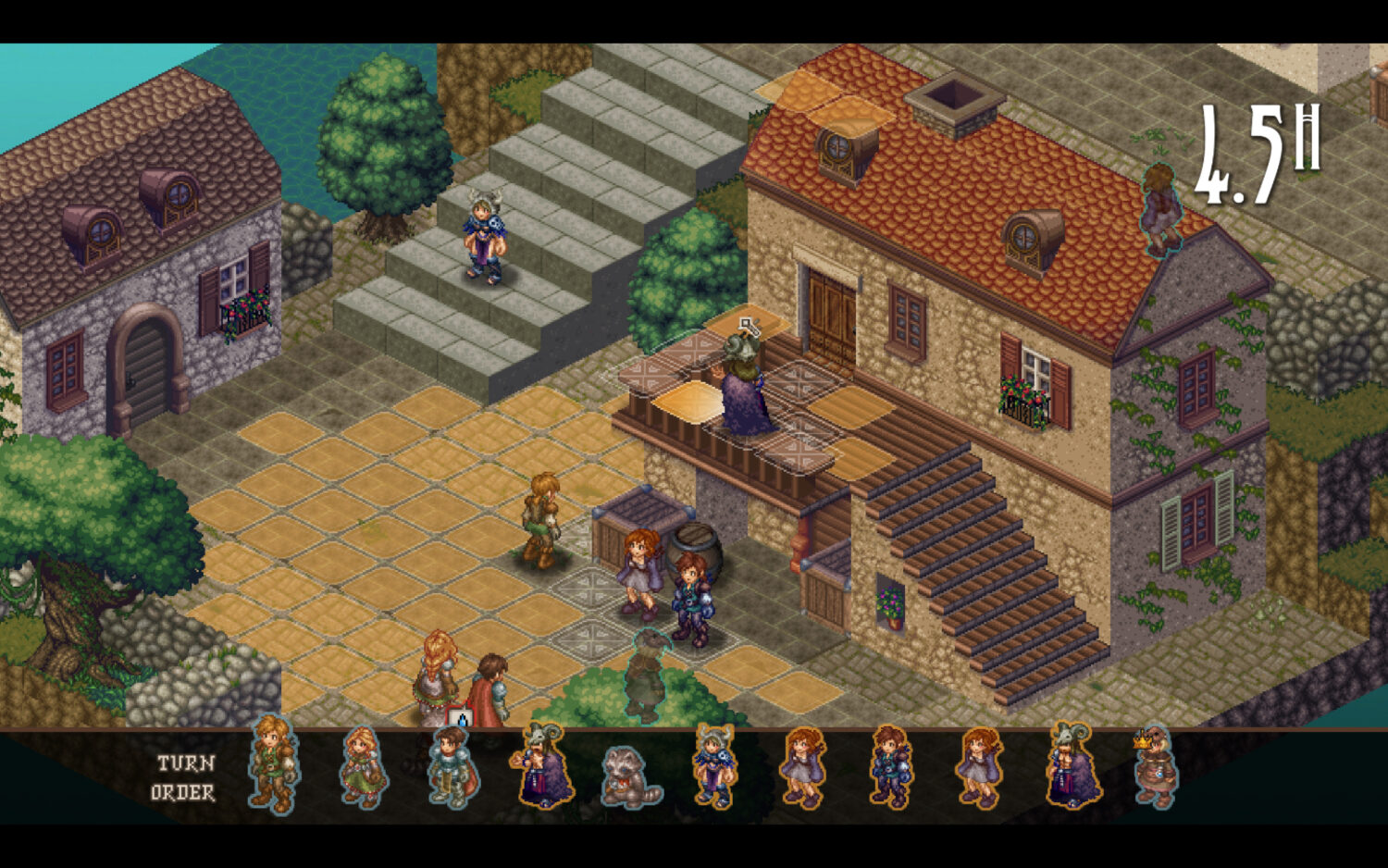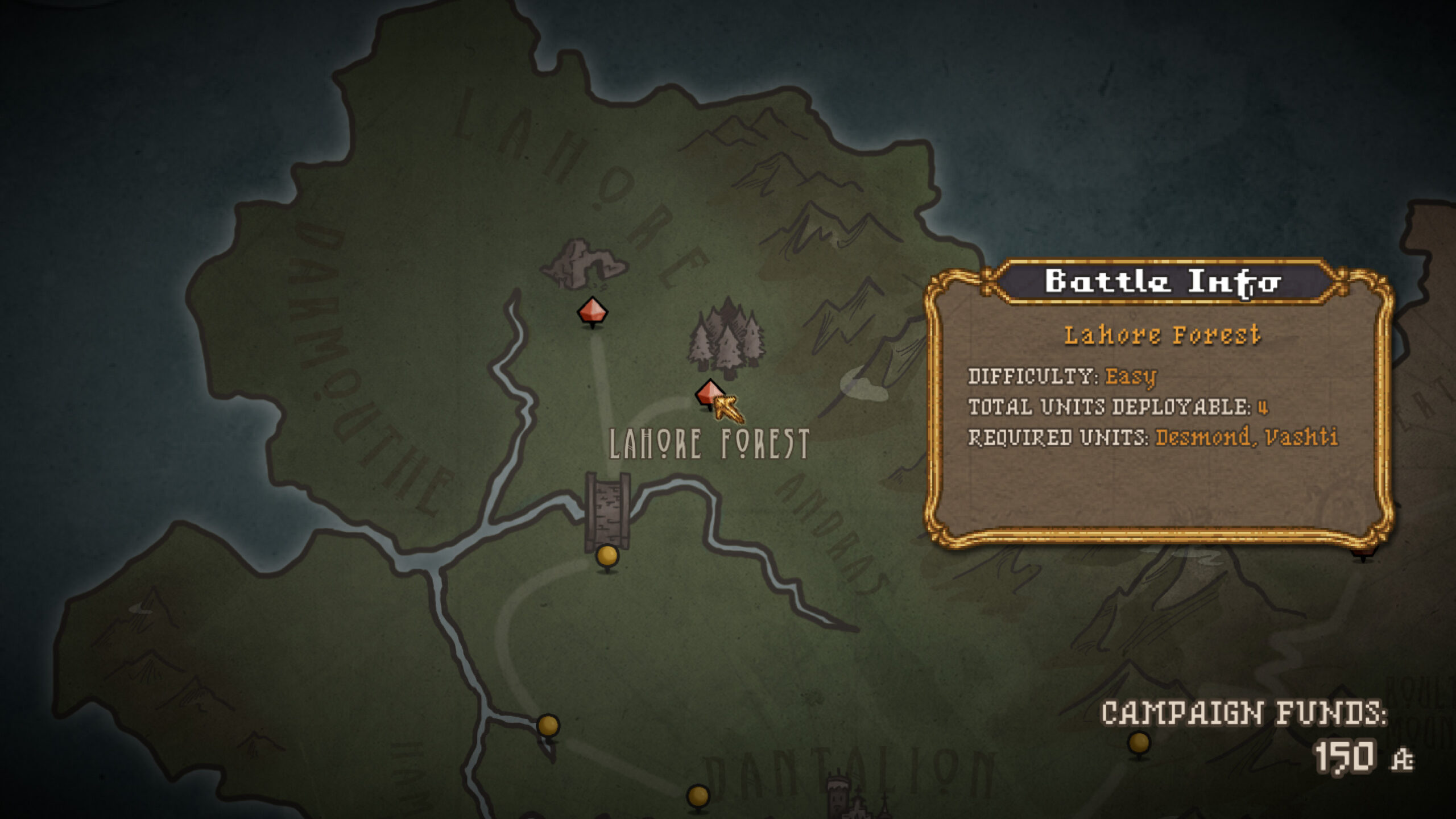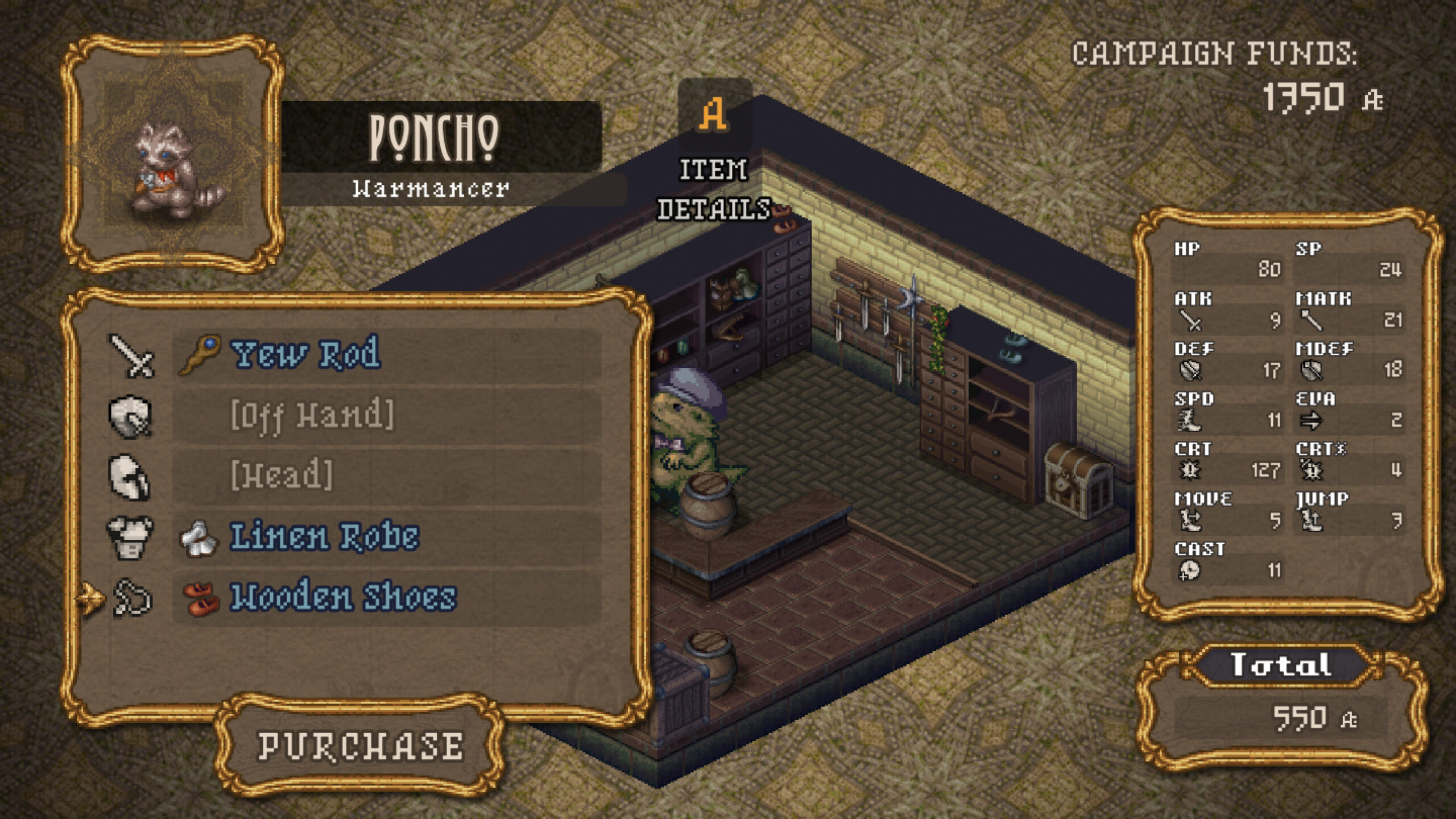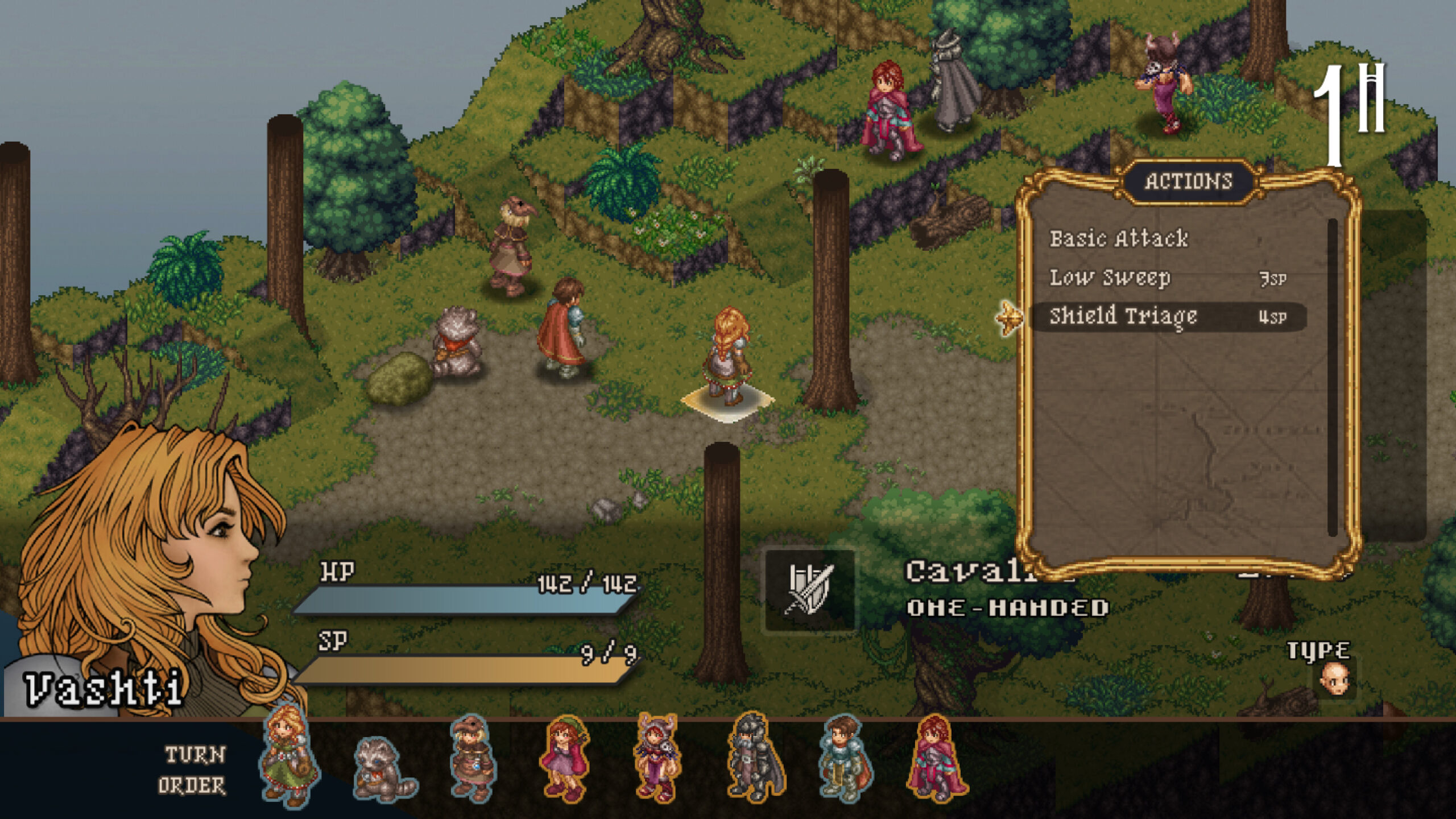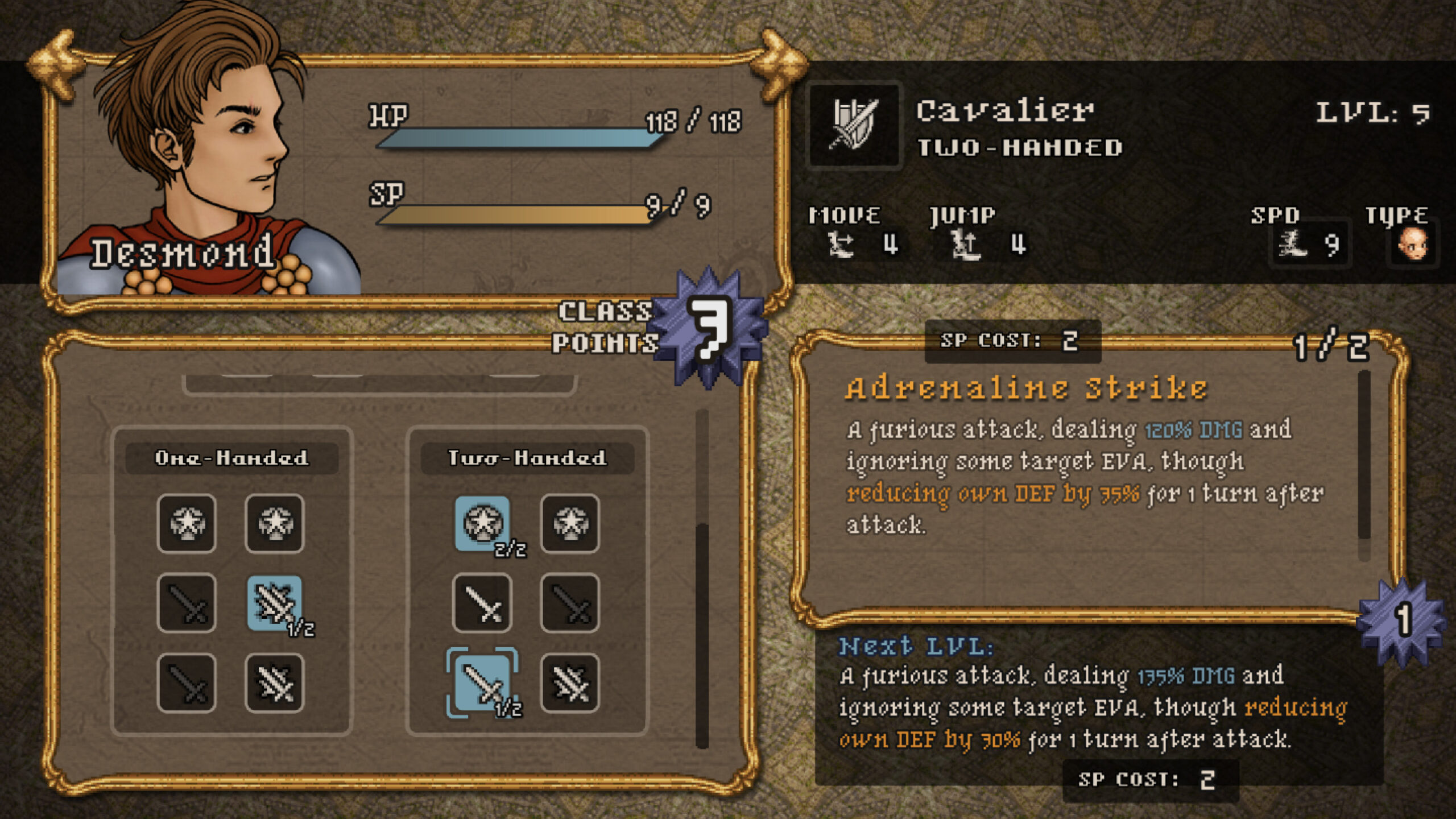For love of kingdom, family, and smooth jazz.
The Nintendo Switch has no shortage of tactical RPGs. (I don’t think anything in the world has a shortage of tactical RPGs.) And I’m cool with that. But how does an indie developer help their entry stand out in the genre? In the case of Arcadian Atlas, it’s the soundtrack of all things.
I’m going to start there, because it really is the most distinct aspect of the game. Although set in a typical fantasy world, the soundtrack is light jazz—like a ’70s-’80s movie score from John Barry. It’s an interesting choice, creating a weird disconnect between what we’re hearing and what we’re seeing. That actually drives up interest in the early stages of the game. Once I grew used to it, however, the gameplay itself wasn’t as effective at carrying me through.
Arcadia is on the brink of civil war as the king’s death draws near. The Queen-to-be may have nefarious plans, causing a split between our two heroes, the siblings Desmond and Vashti. One remains allegiant to the throne, while the other attempts to protect the exiled princesses: Lucretia and Annalise.
It’s an intriguing story that kept me invested until it took a weird turn at the end. Not a bad turn, per se, just an unexpected one.
As you’d expect from a tactical RPG, Arcadian Atlas moves you around a map for story development and combat. Unlocking new areas also unlocks new items to purchase and soldiers to recruit, and those recruits become a key element on the battle maps.
Although there are multiple main characters you can use in your party, they sometimes either aren’t enough or they’re not what you need to round out your capabilities. So, you can recruit and level up mercenaries to help you on your way. This costs money, however, and that’s not easy to come by. As a result, you’ll progress by balancing out your recruits and keeping everyone properly equipped with upgraded weapons and armor. I had to rely on my soldiers-for-hire more often than I would have expected.
Leveling up is the main key to progression. Arcadian Atlas does give you some sidequests to keep the process interesting, but you’ll still need to replay battle maps to gain some extra experience and cash. Mostly, you’ll need to do this right after completing the map the first time. Unit placement and enemies will change, but it still forces redundancy that slows progression more than I’d like, especially in the early stages.
The combat gameplay itself is fairly standard, but entertaining. You’ll begin by selecting and placing your units, then taking advantage of terrain and skills to—in turn—isolate and eliminate your foes. Enemies will almost always take multiple hits, so buffing and healing your units while debuffing the enemy is the only way through. Your incapacitated soldiers need to be revived within a few turns or you lose them. Of course, you can also just complete the level before that happens.
The game has over 150 combat skills to learn across 12 unlockable soldier classes. It’s a lot to handle as you work through the skill trees, but it’s never overwhelming. I felt in control of my party from start to finish.
The game’s retro visuals are fine, working well in both docked and handheld mode. Inventory and unit screens are easy to read, although the dialogue text is a bit small.
Certain maps are harder to see than others because of the inability to shift the camera, however.
All of this combines to provide suitable filler as the AAA Switch releases slow down ahead of Nintendo’s new console announcement. Arcadian Atlas likely won’t top your list of all-time great tactical RPGs. But if you’d rather spend your time on a new game than replaying the ones that are on that list, Desmond and Vashti do just enough to make this an adventure worth taking.
Review: Arcadian Atlas (Nintendo Switch)
Fair
It’s probably not good that the most distinctive element of Arcadian Atlas is its jazzy soundtrack, but it’s still a decent tactical RPG that provides enough challenge and intrigue to overcome a few missteps. Genre fans will get their money’s worth.

